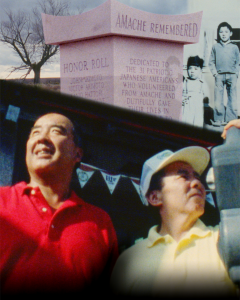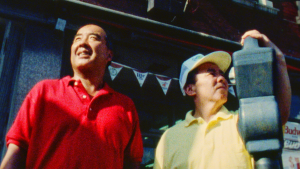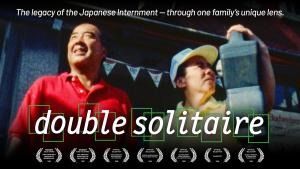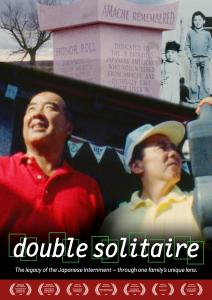Double Solitaire
Introduction
In Double Solitaire, the filmmaker uses the motif of games to tell the story of her Japanese-American father and uncle’s incarceration as children in an internment camp during WWII, and the legacy of that experience up to the present day, including the effect of Redress and Reparations.
Featured review
Synopsis
In Double Solitaire, the filmmaker uses the motif of games to tell the story of her Japanese-American father and uncle’s incarceration as children in an internment camp during WWII, and the legacy of that experience up to the present day, including the effect of Redress and Reparations.
Although initially the men say that the experience didn’t affect them that much, closer examination reveals painful episodes and a sense of shame that manifested as a pervasive silence around the experience. The film is a quest on the family level to bring the experience forward and then integrate it into family history, mirroring the movement on a national level to also acknowledge and integrate this experience into U.S. history.
Reviews
Awards and Screenings
Director Commentary
Features and Languages
Film Features
- Audio Description
- Closed Captioning
Film/Audio Languages
- English
Subtitle/Caption Languages
- English







Double Solitaire was an attempt two reconcile two different stories: the one I knew- of my all-American, patriotic father and uncle, who loved bowling, baseball and playing poker; and the one I didn’t know anything about: that they were incarcerated as children by the American government during WWII because they were Japanese-American.
The film was an attempt to weave these two stories together in a way that felt by the end that we had achieved some sort of integration of the experience into our family life and history.
I consider this a Post-Redress film in that, because Redress and Reparations had already happened (in 1988), I didn’t feel that I always had to prove that the interment was a terrible thing, and I could dare to have my father and uncle open the film by saying that they didn’t think the experience affected them that much (statements that would go on to be complicated as the film continued). But when the film was first released in 1998, although younger Japanese-Americans really liked it, some of the older Japanese-Americans, specifically the Nisei who had suffered so much during the internment, gave it a lukewarm reception (which I completely understand).
I hope that viewers take away an appreciation of the weight of political decisions- how each one can have great impact – both positive and negative (in the case of the internment as well as Redress) on everyday citizens. I hope they support the teaching and learning of the histories of all the people of the United States, and to understand that it’s important to learn about and acknowledge the difficult aspects of our history as well as celebrating the good parts.